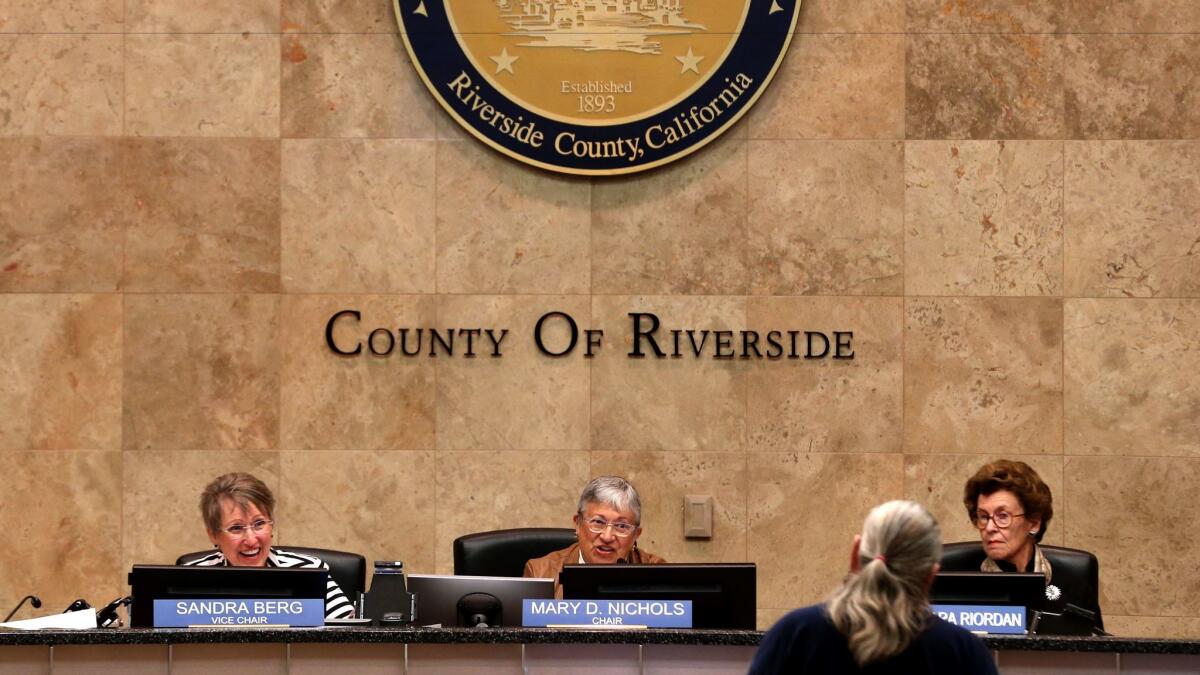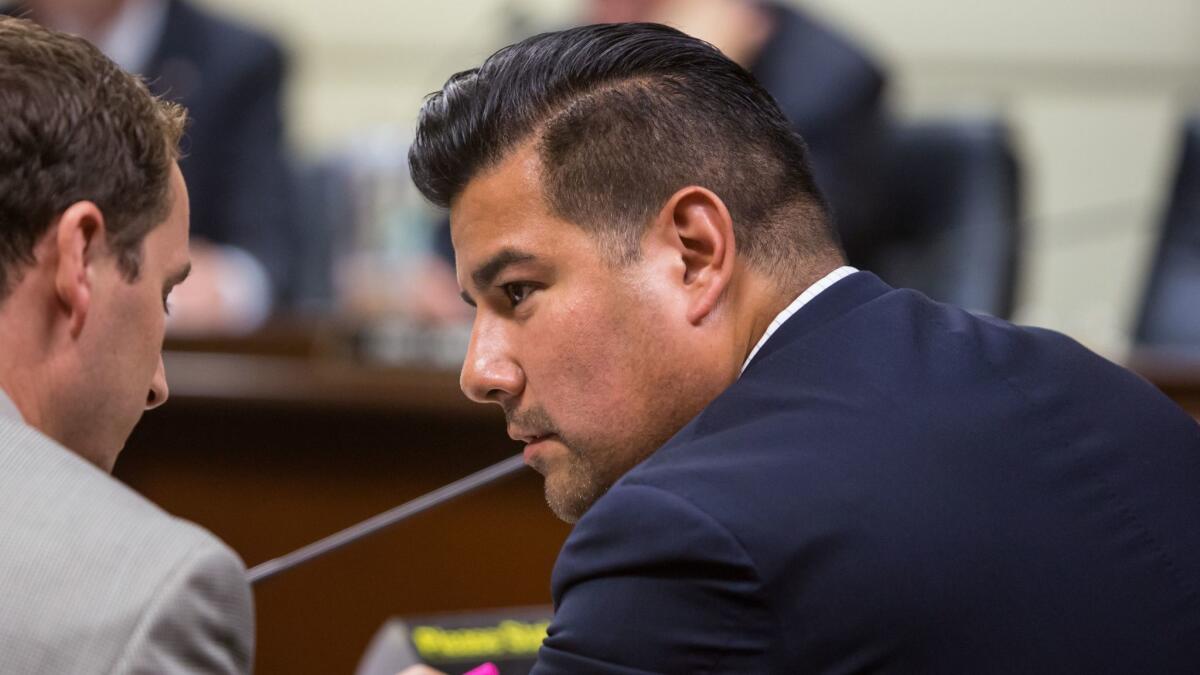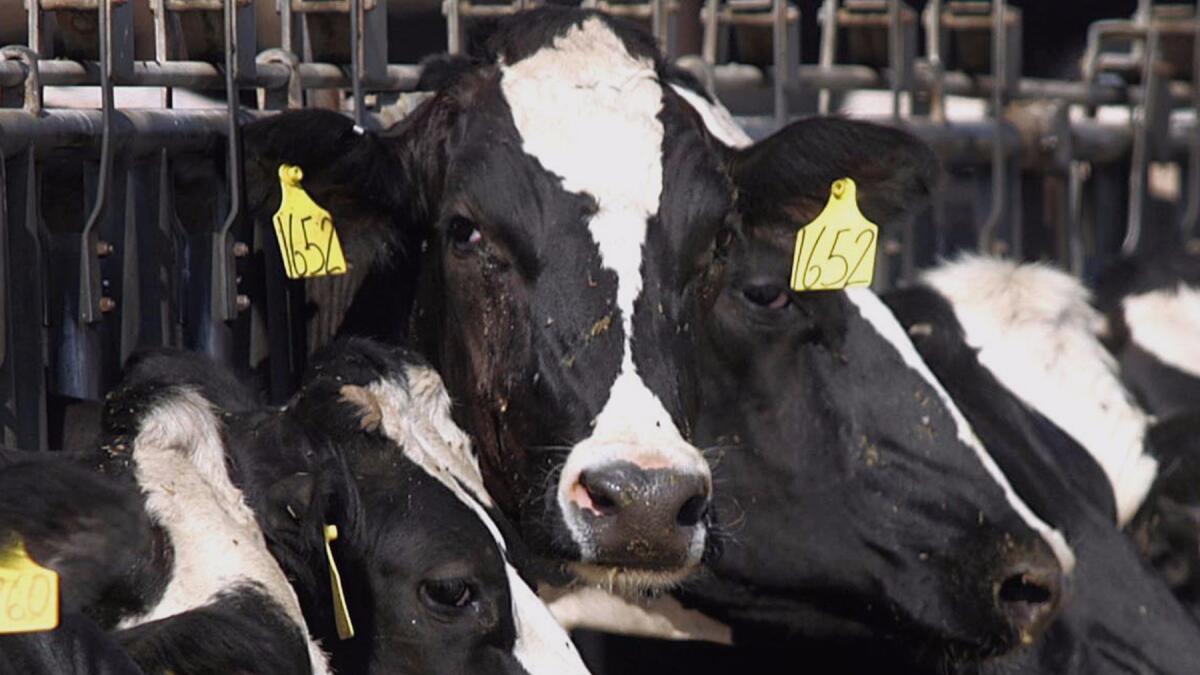California regulators launch new campaign against harmful climate pollutants

- Share via
Reporting from Riverside — California opened another front in its fight against global warming on Thursday, launching a new strategy for slashing so-called super pollutants that have an outsize impact on the climate.
The plan targets emissions such as methane from cow manure, black carbon from diesel exhaust and hydrofluorocarbons from refrigerators. Regulators at the Air Resources Board, which approved the strategy, and other government agencies will now need to write detailed rules for achieving the reductions.
As the world races to limit rising temperatures from climate change, some experts have suggested that targeting these pollutants could help make big gains more quickly. They hope the state’s action will help demonstrate policies that other governments could imitate.
“California is the living laboratory for the world, and it’s moreso true now than before,” said Veerabhadran Ramanathan, an atmospheric scientist at UC San Diego who has advised state leaders on climate policies.
Follow live coverage from the Capitol on Essential Politics »
The emissions are sometimes referred to as “short-lived climate pollutants” because they have a relatively short life span once they’re dispersed into the atmosphere. But they’re particularly potent — methane, for example, is about 80 times more damaging in terms of heating the atmosphere than carbon dioxide.
State Sen. Ricardo Lara (D-Bell Gardens), who recently joined the Air Resources Board and authored the legislation that spurred the new strategy, called the state’s plans “truly groundbreaking.”
“This is where California’s leadership really plays a key role,” he said.

The law sets targets for reducing certain emissions by 2030. Methane and hydrofluorocarbons would need to be cut to 40% below 2013 levels, and black carbon would need to be reduced to 50% below 2013 levels.
Meeting the goals could require more efficient refrigerators, replacing wood stoves and diverting waste from landfills. Some of the projects would involve incentives funded with public dollars.
The biggest and most controversial changes could occur at dairies, where manure contributes an estimated 25% of the state’s methane emissions.
Some dairies are concerned about how they’ll meet the target, and they’re hoping for public funding to install equipment like digesters to transform manure into electricity. They’re financially constricted because, unlike other businesses and farmers, the state carefully regulates milk prices.
“We cannot pass on our costs,” said Anja Raudabaugh, who leads Western United Dairymen, which lobbies for dairies in Sacramento. “We’re not the oil industry. We can’t add four cents to a head of lettuce.”

Other advocates criticized the rules as too lenient on dairies. Regulators are not required to adopt a specific rule for reducing methane from manure until Jan. 1, 2024.
Brent Newell, legal director at the Center on Race, Poverty and the Environment, said the delay undermines the state’s goals.
“There’s no reason to treat the dairy industry special,” he said. “We don’t prop up the coal-fired power plant industry.”
Lara defended the years-long wait until regulations take effect.
“We had to make sure we created the right market for the energy that would be derived from the dairies, and to give them the opportunity to be engaged in the process,” he said.
Twitter: @chrismegerian
ALSO:
As the White House changes course on climate change, California stubbornly presses forward
Can California go its own way on federal environmental protections? These lawmakers want to try
Updates on California politics
Updates from the campaign trail
More to Read
Get the L.A. Times Politics newsletter
Deeply reported insights into legislation, politics and policy from Sacramento, Washington and beyond. In your inbox twice per week.
You may occasionally receive promotional content from the Los Angeles Times.











